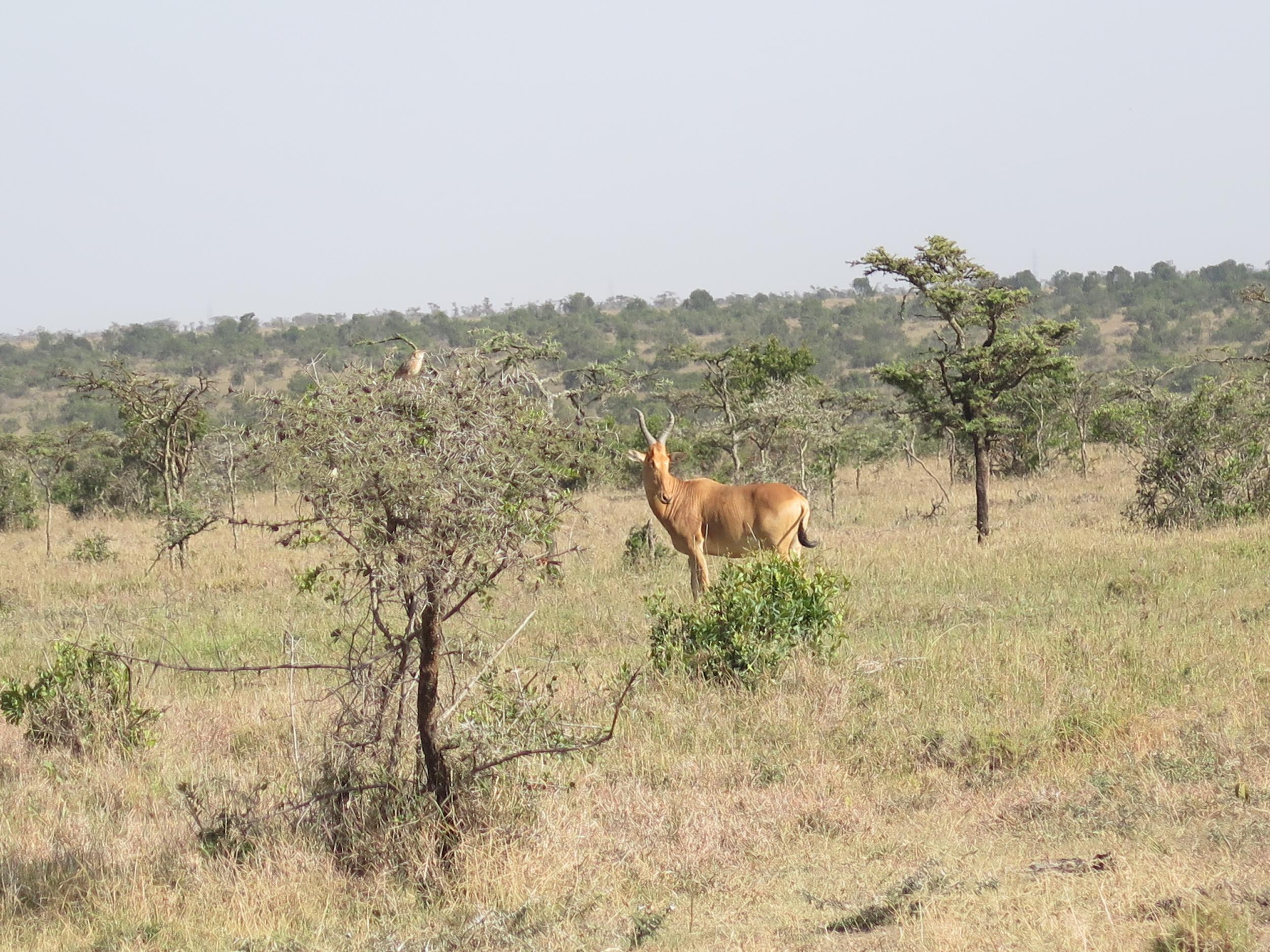Hartebeest numbers dropping in Kenya, threatening extinction
Two of Kenya’s major hartebeest species disappearing as a result of habitat destruction, diseases and hunting

Large antelopes called hartebeests, which were formerly widespread in Africa, have over the years declined in numbers with some sub-species being declared extinct, according to the International Union for Conservation and Nature.
Hartebeest is a large African antelope, also known as Kongoni, which has eight sub-species of which one is entirely extinct while others are facing imminent danger.
“Hartebeests have significant numbers. The main threat to these species is habitat degradation and diseases but we have put in place measures to conduct more researches for the purposes of treatment of these rare African antelopes,” said Samuel Mutisya, head of Wildlife at Ol Pejeta Conservancy in central Kenya’s Laikipia area.
Kenya is a home of Coke’s and Lewel’s hartebeests, which have cross-bred producing Jackson’s species, whose numbers are also declining. The conservation status of Coke’s hartebeest falls under least concerned and the numbers are noted to be decreasing while the Lewel hartebeest is categorized as Endangered. The numbers, according to the IUCN red list, is also in the decline.
The Bubal hartebeest, which was majorly found within the North of Sahara desert, was declared extinct in 1994 by the IUCN while the Tora hartebeest has been classified under Critically endangered species, meaning it faces very high risk of extinction.
Critically endangered category is the highest risk category assigned by the IUCN red list for the wild species. And while the Jackson’s hartebeest has significant numbers and is largely found in the Mount Kenya region, with significant numbers in Laikipia and Lewa conservancies, the populations have been drastically been reducing, a situation which researches are pointing it to predation, diseases and also habitat loss.
It is presumed that Jackson’s hartebeest has significant numbers, with those in Laikipia having declined by more than 80 percent in the past 15 years.
Mr Mutisya said Jackson’s hartebeests are under key monitoring within the conservancies in Laikipia. Lungworm disease, erratic rainfall as a result of climate change form part of the factors threatening the existence of hartebeests.
Reports from the IUCN indicates that nearly 70 per cent of antelope species are classified as ‘Near Threatened’ or ‘Least Concern’. The hartebeest is extinct in Algeria, Egypt, Lesotho, Libya, Morocco, Somalia, and Tunisia; but has been introduced into Swaziland and Zimbabwe.
Reports further indicates that hunting threatens hartebeest due to its highly-regarded meat. Wildlife conservationists, however, say the extinction of the Bubal hartebeest should serve as a warning about the vulnerability of hartebeests.
African Wildlife Foundation has also been working with governments and residents to designate wildlife corridors, especially in areas where hartebeest use to roam freely and safely from one park or country to another. “Corridors link protected areas and allow wildlife to follow rains or travel to their calving grounds in safety,” AWF stated in its website.
This article is reproduced here as part of the Giants Club African Conservation Journalism Fellowships, a programme of the charity Space for Giants and supported by the owner of ESI Media, which includes independent.co.uk. It aims to expand the reach of conservation and environmental journalism in Africa, and bring more African voices into the international conservation debate. Read the original story here


Join our commenting forum
Join thought-provoking conversations, follow other Independent readers and see their replies